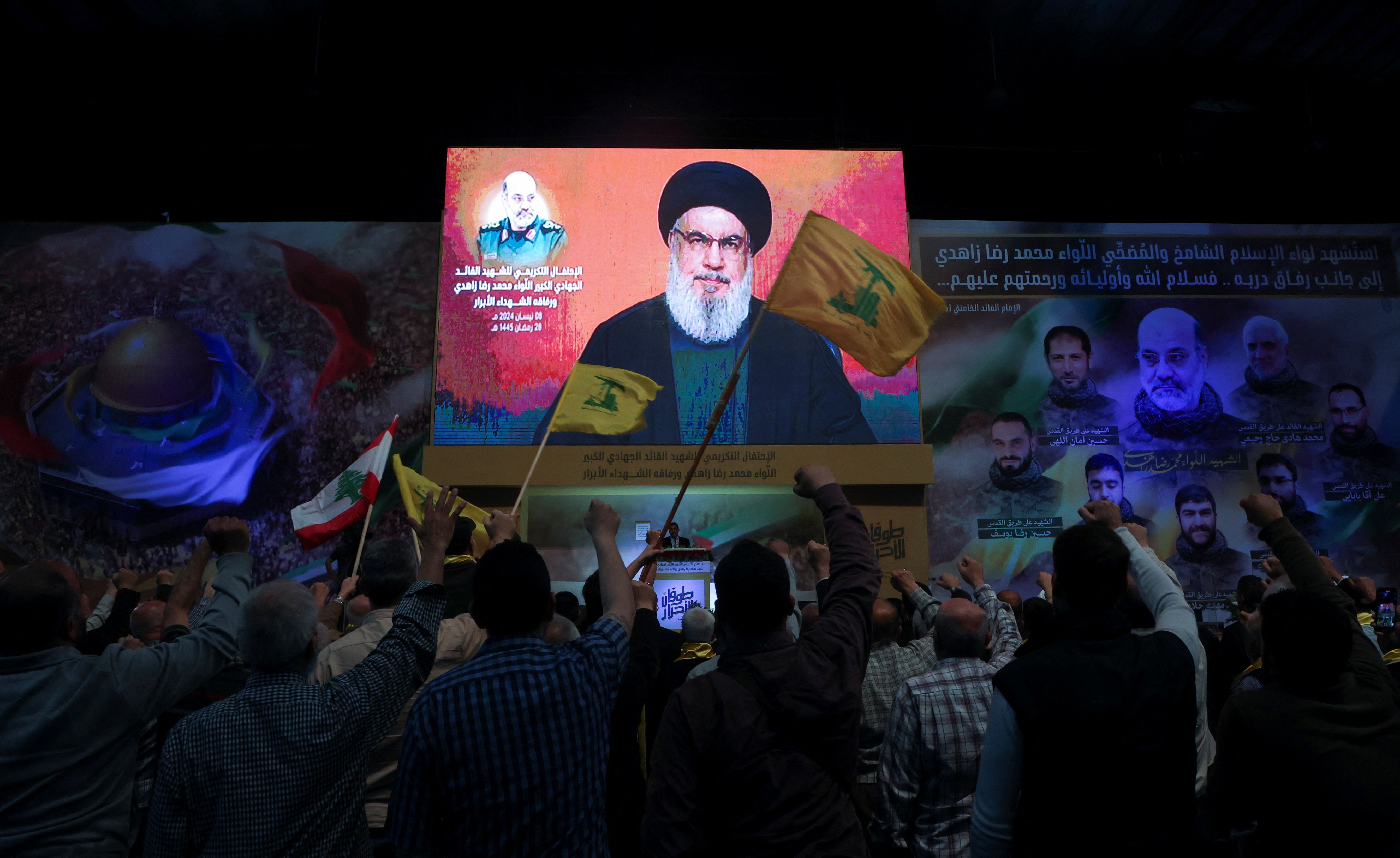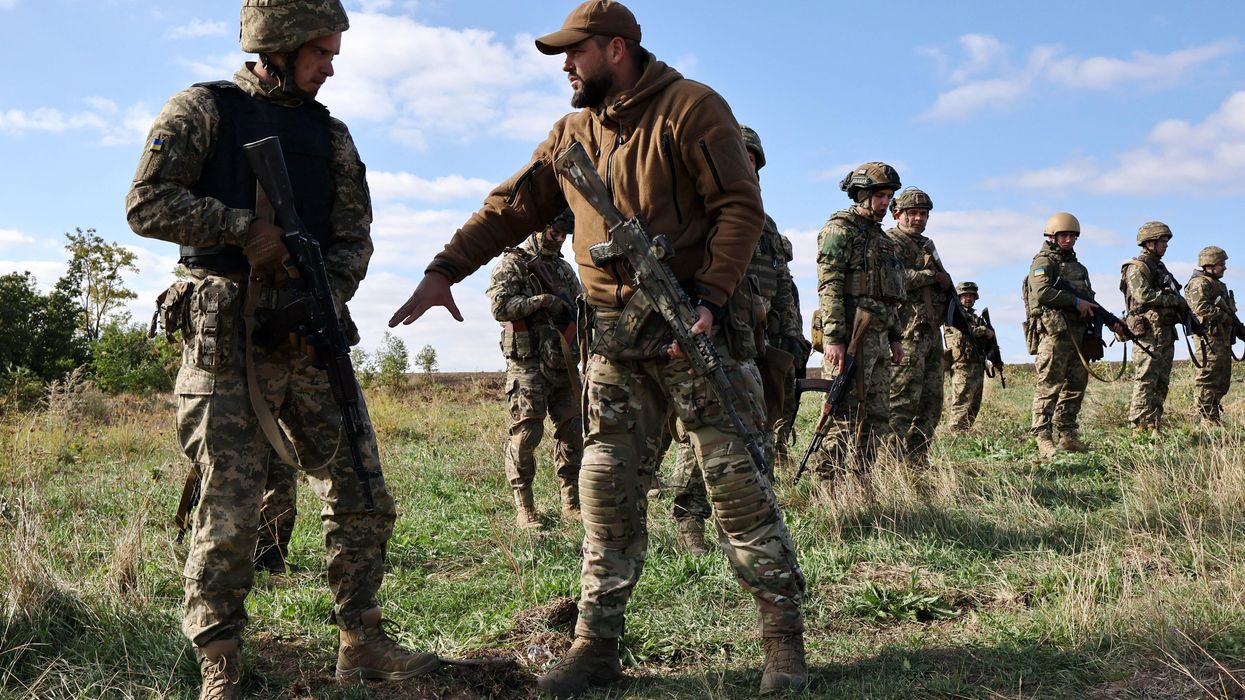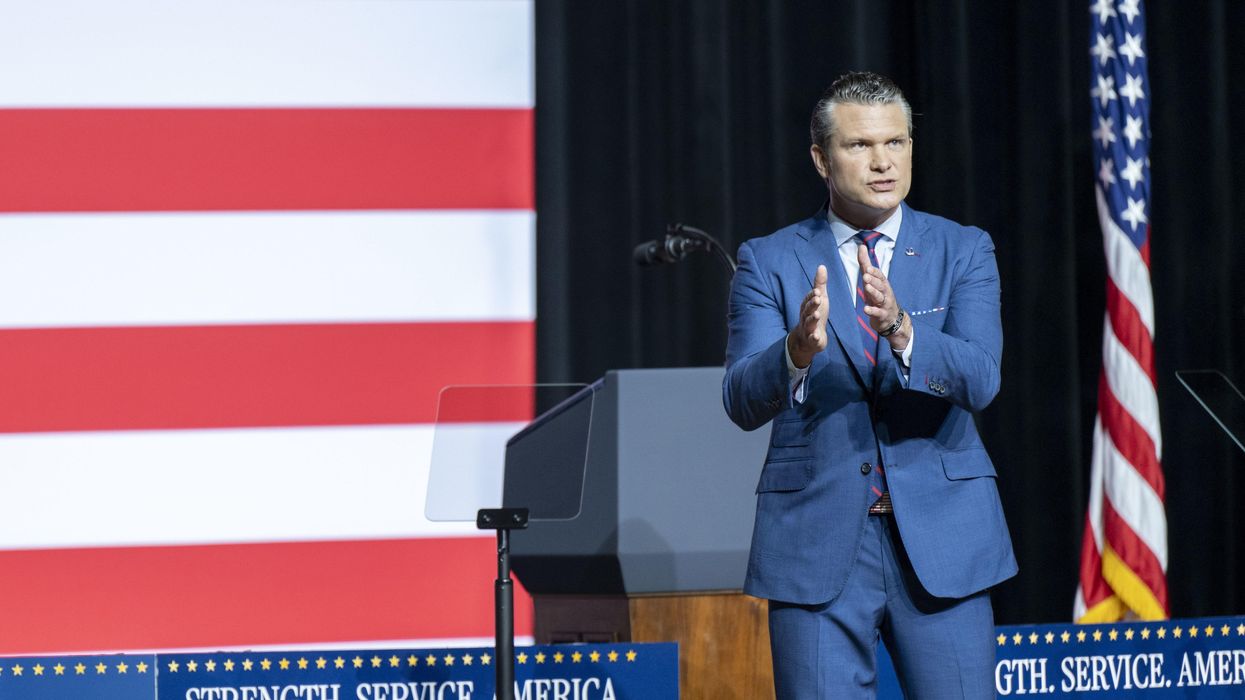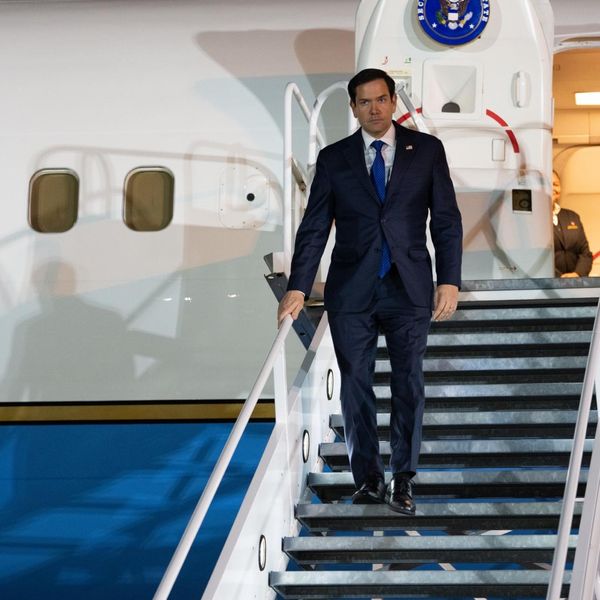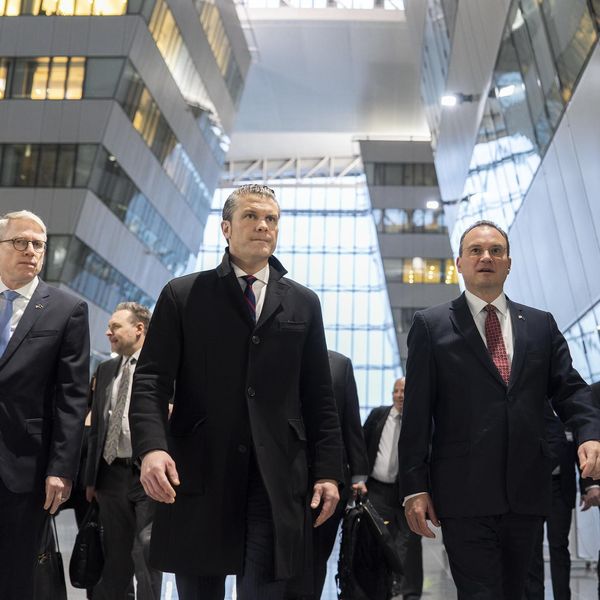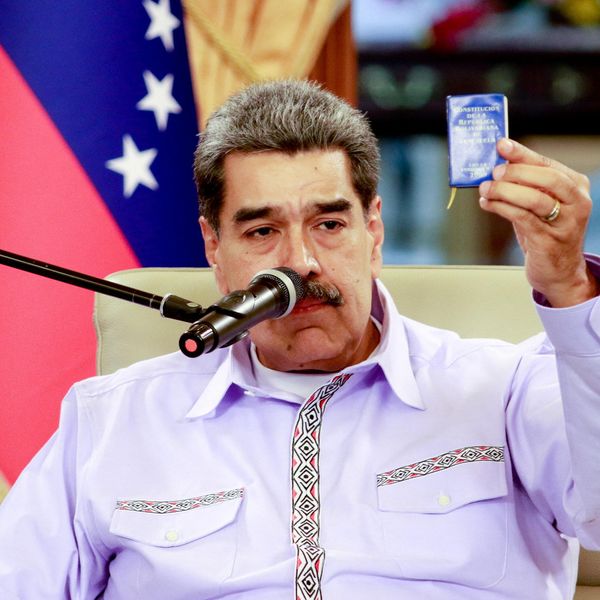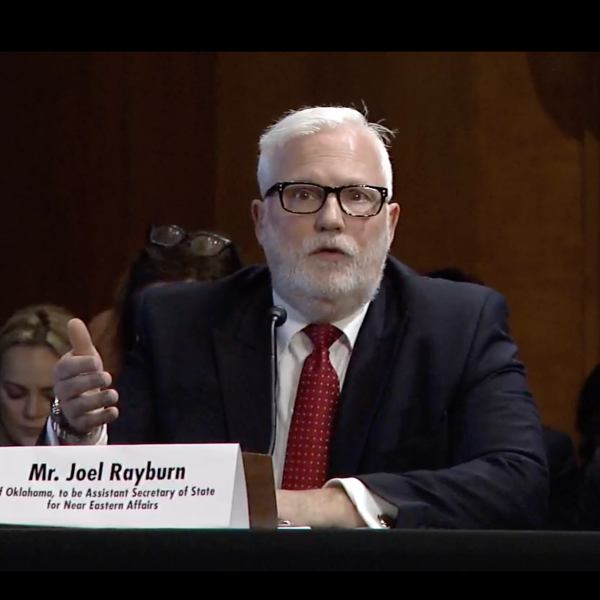During a speech in Beirut on Friday, Hezbollah leader Hassan Nasrallah said that Iran will surely retaliate for last week’s attack, presumably by Israel, on its consulate in Damascus that led to the death of seven members of the Islamic Revolutionary Guard Corps, including senior Al-Quds commander Mohammad Reza Zahedi.
In a televised address marking “Quds Day,” Nasrallah described the attack as a “turning point,” warning that any scenario was possible in its aftermath.
“Everyone must prepare themselves, arrange their matters and be careful when the Iranian side responds to the targeting of the Iranian consulate and to the Zionist enemy’s possible response to the Iranian response,” he said.
Nasrallah's statements are significant in that they indicate a readiness for the first time since the Gaza war broke out after Hamas’ October 7 attack to intervene massively should a wider war erupt between Iran and Israel, a message which appeared directed at the United States as much as Israel itself.
“Sayyed Nasrallah’s statements were also intended for the Americans,” according to Ali Murad, a columnist with the Lebanese daily Al-Akhbar, in remarks to RS. “The message is that Washington must rein in its Israeli ally after Iran's response, otherwise Hezbollah will take action without constraints should Israel attack Iran.”
That Hezbollah will intervene should a broader conflagration between Israel and Iran erupt appears to be a given. The Lebanese movement is by far Iran's closest ideological ally. Given that it relies on Tehran for its funding and weapons, Hezbollah also sees ties with the Islamic Republic through a strategic and even existential lens.
More importantly, Hezbollah is Iran's most powerful military ally, hence its intervention — should a wider war be waged on Iran — will likely have a major impact. According to a recent report published by the Center for Strategic and International Studies, the movement can easily be described as world’s most heavily armed non-state actor, with some estimates pointing to up to 200,000 missiles and rockets in its arsenal.
The Lebanese Israeli front
Nasrallah also appeared to respond to recent Israeli threats of escalation against Lebanon, warning for the first time since the outbreak of the latest round of fighting along the Israeli-Lebanon border that Hezbollah has used only a fraction of its capabilities.
“We have not used the main weapons nor the main forces and we have not called in the reserves,” he noted.
These remarks followed the announcement by Israeli Defense Minister Yoav Gallant of the start of a new phase in the military operations against Hezbollah. During a tour of the Israeli northern front, Gallant outlined a pivot towards a more offensive tempo, promising to strike Hezbollah “wherever the organization operates, in Beirut, Damascus and in more distant places.”
The Israeli minister’s statements came as Israel has upped the ante in its operations against the Lebanese movement. Israel announced this week the assassination of a Hezbollah commander whom it said was a member of the movement’s elite Radwan forces. An air raid also targeted what Israel said were Hezbollah air defense positions in the Eastern city of Baalbek. The attack came after the group shot down an Israeli drone.
According to experts, Nasrallah’s apparent response to Israeli escalation on the Lebanese front aims to maintain a relative level of deterrence. “Hezbollah continuously and gradually reveals its military capabilities and its high level of readiness to strengthen deterrence against the Israeli military,” Lebanese researcher Hussam Matar, told RS. Matar is close to the Shiite movement and author of the book “The Soft Power War Between the US and Hezbollah.” He added, “Hence the reference to capabilities not yet used are a message which aims to shape the perceptions of the enemy regarding the costs of escalation.”
While Israel’s latest military operations clearly mark an escalation, they remain below the threshold that would essentially force Hezbollah’s hand. They largely continue to be characterized by targeted strikes against foot soldiers and field commanders from the movement.
Such military action remains a far cry from the Dahiya Doctrine according to which Israel would launch a large scale offensive designed to destroy civilian infrastructure, a tactic employed during its 2006 war against Hezbollah strongholds in southern Beirut and again in its latest war against Hamas and Islamic Jihad in Gaza.
As long as Israel continues to operate below this threshold, any escalation on its part is likely to be met with the kind of calculated retaliation that has characterized Hezbollah’s strategy in the current conflict.
“The pattern of attacks and counterattacks over the past six months clearly demonstrates that Hezbollah is not seeking a broader war with Israel,” explained Beirut based analyst with the Atlantic Council Nicholas Blanford in an interview with RS. “At present it is mainly Israel that is setting the escalatory cycle.”
However, a “Dahiya Doctrine” scenario against Lebanon cannot be entirely ruled out, particularly given the Israeli government's recent escalatory operations, notably the attack on the Iranian consulate. But its implementation faces serious challenges given that Hezbollah will almost certainly respond in kind. The firepower unleashed by the Lebanese movement’s missile arsenal could overwhelm Israel’s air defense capabilities, as impressive as they are, and cause severe and unprecedented damage to Israel’s homefront. Israeli officials have recently warned of such consequences amid the latest escalation. According to Yoram Laredo, the head of Israel’s National Management Emergency Authority, a full-scale conflict with Hezbollah would cause great damage to the Israeli economy, in addition to nation-wide power outages.
Given the relationship between Hezbollah and its allied militias in Syria and Iraq, a full-blown conflict between the Lebanese movement and Israel would also likely spread to these countries, both of which are home to U.S. bases, thus increasing the risks of Washington being dragged into such a conflict.
“With the possible spread of any Hezbollah-Israel confrontation into Syria and Iraq, the U.S. might find itself more deeply involved at that time,” senior adviser at Gulf State Analytics Theodore Karasik told RS. Washington, he added, will be “challenged about which steps to take next.”
Hezbollah's allies in Iraq and Syria form part of a broader network of ideological Shiite allies which also includes the Houthis in Yemen. Given this ideological affinity, the actions these players have taken in support of Hamas and other factions fighting Israel in Gaza will likely pale in comparison to what they may do should the Israeli military resort to a Gaza-like war plan against Lebanon.
“In case a full-scale war was to erupt between Hezbollah and Israel, Yemen and its leadership will stand with the party (Hezbollah) militarily, politically and economically,” said a Houthi source who requested not to be named in a statement to RS. “The military intervention will be without limits and according to what the party requests, and may include missile and drone attacks, along with the sending of foot soldiers.”
Such statements mean that Israel will likely not only face additional firepower to the already formidable arsenal in Hezbollah’s possession but may also face more manpower. This latter factor would represent an especially acute concern for Israel should it carry out a land operation in Lebanon, given the shortage of troops within its own ranks.
Against this backdrop it’s possible that the Israeli military would be unable to withstand such a war without the United States becoming an active participant. This is supported by U.S. intelligence assessments warning that the Israeli military will be overstretched should a full-fledged war with Hezbollah erupt, making it unlikely that Israel will succeed in such a conflict.
Should the U.S. intervene directly to support Israel under such scenario, American military bases and personnel would likely become targets in places like Iraq and Syria.
- Why Hezbollah doesn't want a full-scale war. Yet. ›
- Did Israel kill Iranian commander to provoke a wider war? ›
- Hezbollah plays down Israel threat of full blown war | Responsible Statecraft ›
- Is Israel-Hezbollah war inevitable? | Responsible Statecraft ›
- Wider war closer after Israel's attack on Lebanon | Responsible Statecraft ›
- How Hezbollah is navigating a new era | Responsible Statecraft ›

